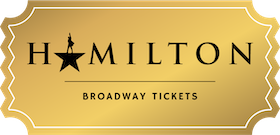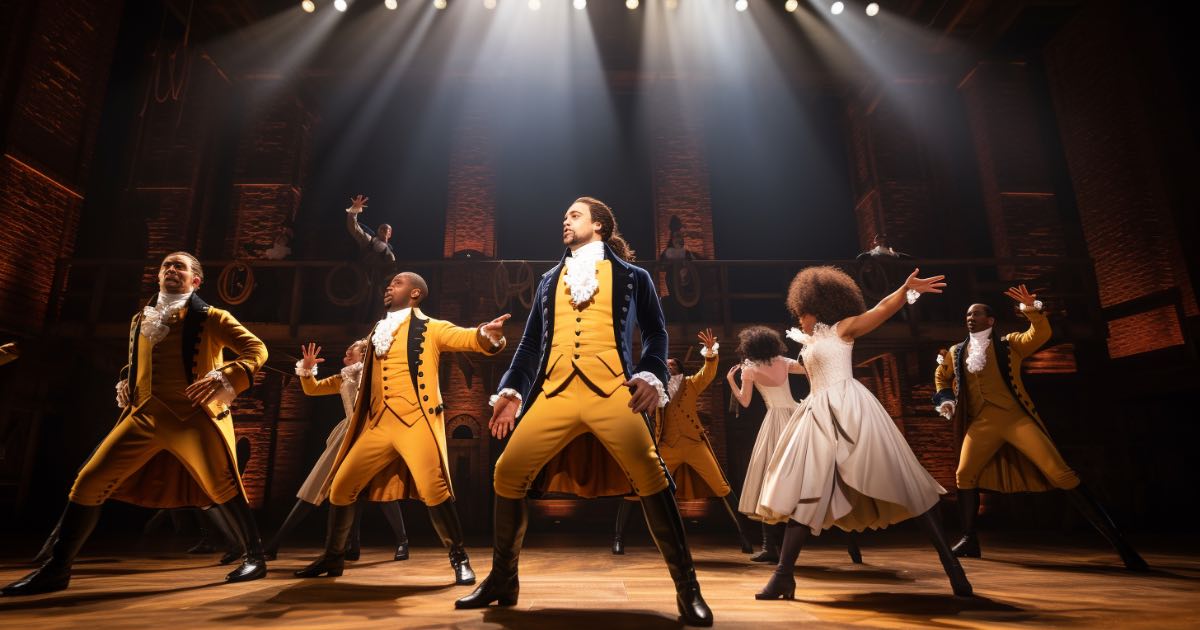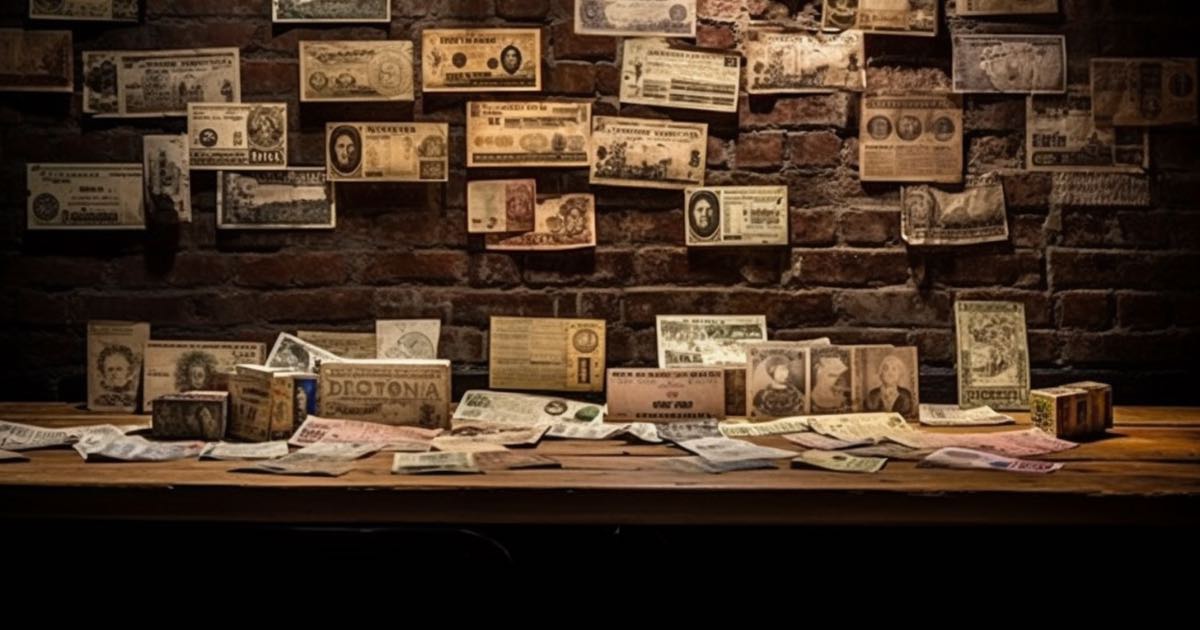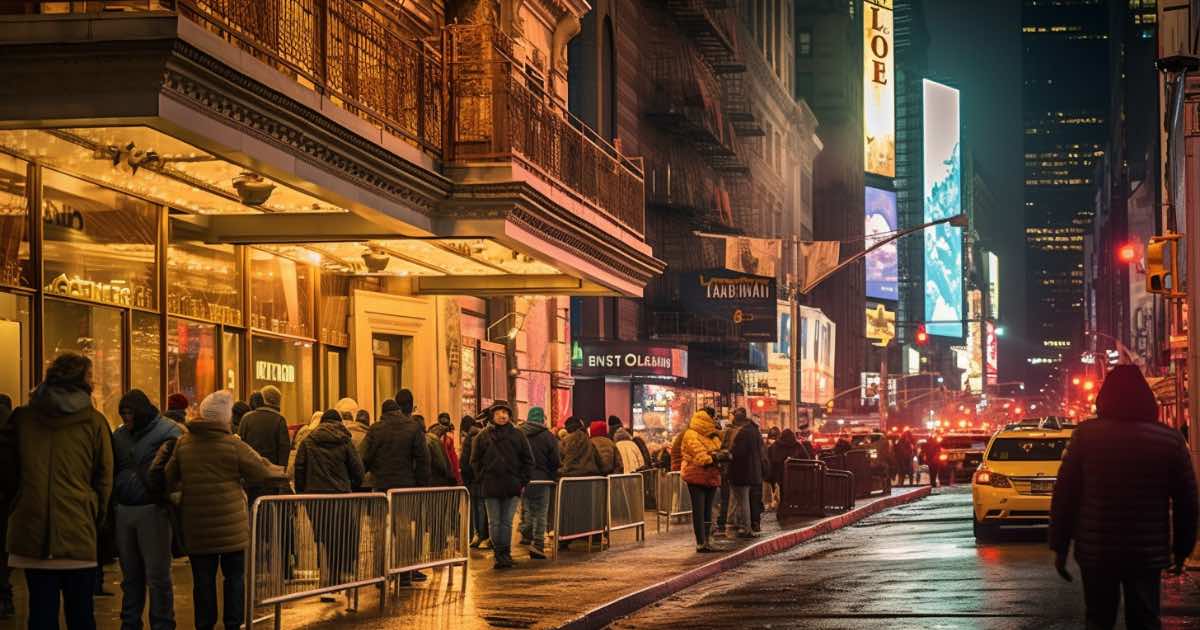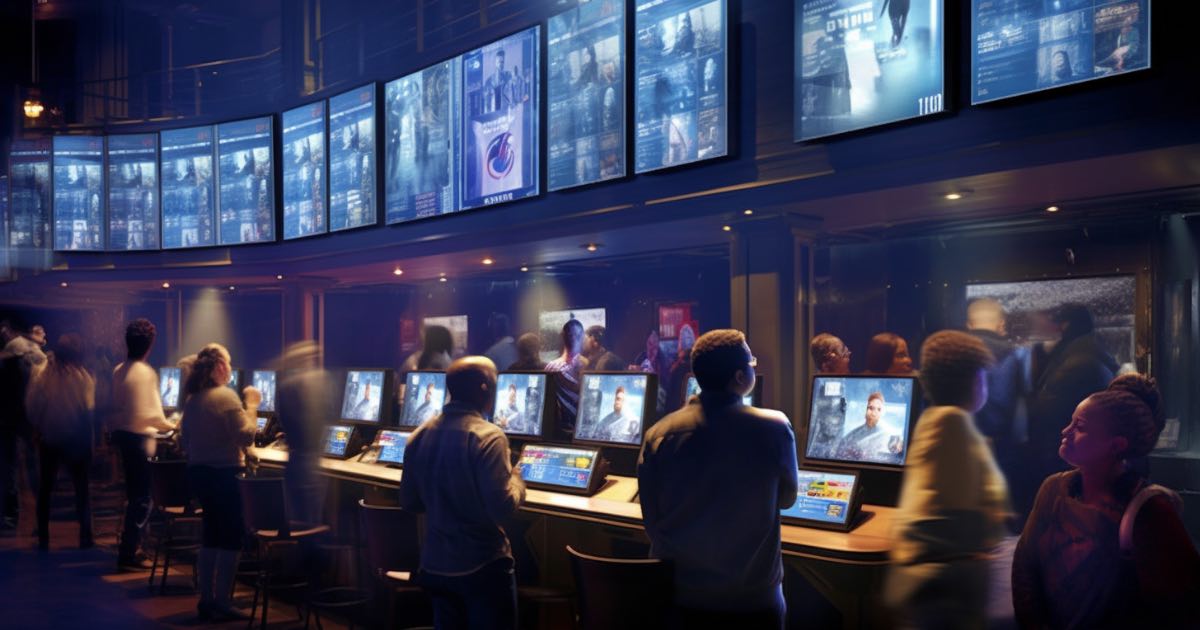When Lin-Manuel Miranda’s “Hamilton” burst onto the scene, it didn’t just revolutionize the Broadway musical landscape and set the ticketing world abuzz. With its unique blend of hip-hop rhythms and historical narrative, this groundbreaking musical became an instant sensation, making “Hamilton” tickets some of the most sought-after in theater history. But what’s the story behind these tickets? How did they become the golden goose of Broadway? Let’s embark on a journey through time, analyzing the history and trends of Hamilton Broadway tickets.
From its humble beginnings at The Public Theater to its meteoric rise on the grand Broadway stage, “Hamilton” has always been a magnet for theatergoers. But it’s not just the captivating performances or the toe-tapping numbers that have made it a phenomenon. With their own tales of demand, innovation, and controversy, ticket sales have played a pivotal role in shaping the “Hamilton” legacy.
So, whether you’re a die-hard “Hamilton” fan, a theater enthusiast, or someone intrigued by the economics of Broadway, this deep dive into the world of “Hamilton” ticket sales promises insights and revelations aplenty. Ready to take the stage?
The Early Days: Initial Buzz and Ticket Sales
Every legend has a beginning, and for “Hamilton”, it all started in the intimate confines of The Public Theater. Off-Broadway, away from the glaring lights and the grandeur, “Hamilton” began its journey, weaving tales of America’s founding fathers with a modern twist.
Even in its nascent stage, the buzz was palpable. Word of mouth spread like wildfire, with theater aficionados whispering about a new kind of musical that was rewriting the rules. The initial ticket sales, while modest compared to what was to come, were a clear indicator of the storm brewing. Shows were sold out, and the demand was, quite simply, through the roof.
As the rave reviews poured in and the accolades started piling up, it became evident that “Hamilton” was destined for bigger stages. The transition to Broadway was inevitable. And when it happened, it was nothing short of a spectacle. Ticket sales skyrocketed, with prices reaching dizzying heights. The initial buzz had transformed into a full-blown frenzy. Folks were clamoring to get their hands on a ticket, some even likening it to finding the golden ticket from Willy Wonka’s chocolate bars!
But what was it about “Hamilton” that created such a stir? Was it the fresh narrative, the diverse cast, or the sheer genius of Lin-Manuel Miranda’s compositions? Perhaps it was a blend of all these elements and more. Whatever the magic formula was, it was clear that “Hamilton” had tapped into something special. And as the musical transitioned from its early days to the peak of its popularity, the ticket sales bore testament to its unparalleled success. For those lucky enough to snag a ticket during this phase, it was like holding a piece of history, a sentiment echoed in our guide on purchasing Hamilton tickets for others.
The Peak of Popularity: Record-Breaking Sales
As “Hamilton” took its rightful place under the Broadway spotlight, it wasn’t just about the applause or the standing ovations. The ticket counters were ringing, and the numbers were staggering. The musical had hit its stride, and the peak of its popularity was marked by record-breaking sales that left even seasoned theater veterans in awe.
With its plush seats and iconic stage, the Richard Rodgers Theatre became the epicenter of a cultural revolution. Night after night, the house was packed, with fans spanning all ages and backgrounds. The allure of “Hamilton” was universal. But with great demand came skyrocketing prices. Premium seats were going for sums that were previously unheard of in Broadway history. It wasn’t just a ticket but a golden pass to a once-in-a-lifetime experience.
But what drove these record-breaking sales? At its core, “Hamilton” was a masterclass in storytelling, blending historical gravitas with contemporary flair. The characters, though from a bygone era, resonated with modern audiences, making the musical both a reflection of the past and a commentary on the present. This duality, this dance between then and now, was a magnet for audiences.
Moreover, the musical’s success wasn’t confined to the theater alone. Its soundtrack became a sensation, with tracks like “My Shot” and “The Room Where It Happens” becoming anthems. The more people listened, the more they wanted to witness the magic live. And this cyclical effect propelled ticket sales even further.
Of course, with such immense popularity, there were challenges. Scalpers saw an opportunity, and the resale market boomed. But amidst the chaos, the essence of “Hamilton” remained untarnished. It was, after all, a story of ambition, resilience, and revolution.And as fans would agree, getting the best seats was indeed a revolution in itself, a sentiment we delve deeper into in our guide on getting the best seats for Hamilton.
Innovations in Ticketing: Digital Lotteries and More
With the meteoric rise in “Hamilton”‘s popularity, the traditional ticketing system was stretched to its limits. The demand was overwhelming, and the age-old methods seemed ill-equipped to handle the deluge. Enter the age of innovation. “Hamilton” wasn’t just redefining theater; it was reshaping how tickets were sold.
One of the most groundbreaking introductions was the “Hamilton” digital lottery system. Instead of queuing up for hours, hopeful theatergoers could now try their luck online. A select few would get the golden ticket for a fraction of the regular price. This system democratized the process, giving many a shot at witnessing the magic without burning a hole in their pockets. It was a game-changer, leveling the playing field in a world where ticket prices were soaring.
But the innovations didn’t stop there. Dynamic pricing, influenced by demand, seat location, and show timings, added another layer of nuance to the ticketing process. While controversial to some, this approach ensured that the theater was accessible to various demographics. After all, “Hamilton” was a story for everyone, and its ticketing innovations echoed this sentiment.
Furthermore, the introduction of ticket packages added a fresh twist. Fans could now immerse themselves in the “Hamilton” experience with backstage tours, merchandise, and more. It wasn’t just about watching a show but about living it. Our guide on Hamilton ticket packages offers a treasure trove of insights for those looking to make the most of their “Hamilton” experience.
While centered around “Hamilton,” these innovations had ripple effects across Broadway. The digital lottery system became a blueprint for other shows, and dynamic pricing became a mainstay. “Hamilton” had once again set the trend, proving that it wasn’t just a leader on stage but also off it.
External Factors Influencing Sales
While the intrinsic allure of “Hamilton” played a pivotal role in its ticket sales, external factors, often beyond the control of producers and theaters, also left an indelible mark. The ebb and flow of ticket sales, while primarily driven by the musical’s magnetism, was also influenced by the world outside the theater’s ornate doors.
Economic shifts, for instance, played a significant role. In times of economic prosperity, discretionary spending on entertainment, including theater tickets, saw an uptick. Conversely, even a powerhouse like “Hamilton” felt the pinch during downturns, with ticket sales reflecting the broader economic sentiment. It’s all about the Benjamins, after all!
Celebrity endorsements and guest appearances added another layer of intrigue. When high-profile personalities gushed about their “Hamilton” experience or were spotted in the audience, it created a buzz. The allure of possibly rubbing shoulders with the who’s who, even if just in a theater setting, gave ticket sales a nifty boost.
However, no discussion on external factors would be complete without mentioning global events. The COVID-19 pandemic, with its sweeping impact, brought Broadway to a standstill. Theaters went dark, and “Hamilton” had to pause its record-breaking run. The resilience of the theater community during these trying times and the eventual resurgence of “Hamilton” post-pandemic is a testament to its enduring appeal. For those returning to theaters after the hiatus, brushing up on Hamilton theatre etiquette might be a good idea!
Lastly, the evolving media landscape, with streaming platforms and digital broadcasts, also influenced ticket sales. The release of “Hamilton” on streaming platforms brought the magic to living rooms worldwide, potentially impacting the demand for live performances. However, many argue that the digital experience, while mesmerizing, only whetted appetites for the real, live spectacle.
In the grand tapestry of “Hamilton” ticket sales, these external factors added intricate patterns, making the narrative even more compelling. It’s a dance between art and the world it resides in, a dance as intricate as any choreographed number on the “Hamilton” stage.
The Resale Market: Scalpers, Brokers, and Fans
As the curtains rose and the first notes of “Alexander Hamilton” filled the theater, another drama was unfolding outside: the bustling world of the resale market. With “Hamilton” tickets becoming the hottest commodity on Broadway, scalpers, brokers, and die-hard fans were all vying for a piece of the pie.
Always looking for a quick buck, Scalpers saw “Hamilton” as a golden opportunity. With tickets selling out within minutes of release, many fans were left empty-handed, desperately turning to the resale market. With their arsenal of bots and quick-click tactics, Scalpers often managed to snag a bulk of the tickets only to resell them at exorbitant prices. It was capitalism at its most ruthless, with fans often at the losing end.
Operating a tad more professionally than scalpers, Brokers also jumped onto the “Hamilton” bandwagon. With sophisticated systems and networks, they offered tickets to those willing to pay a premium. While some fans criticized brokers for inflating prices, others saw them as a necessary evil to secure a seat at the hottest show in town. For a deeper dive into this world, our guide on the role of ticket brokers in Hamilton ticket sales offers a wealth of insights.
Then there were the fans, the heart and soul of the “Hamilton” phenomenon. Many resorted to buying tickets from the resale market, often parting with substantial sums. For them, it wasn’t just about watching a show but about being part of history. And while some managed to get tickets without breaking the bank, others were left with tales of woe, missed opportunities and deals gone awry.
With its highs and lows, the resale market became an integral part of the “Hamilton” narrative. It was a world where supply and demand played out in real-time, where fans’ dreams were either realized or dashed, and where the line between fair play and foul was often blurred. Ultimately, it reflected the very themes “Hamilton” explored on stage: ambition, desire, and the relentless pursuit of one’s dreams.
Current Trends and Future Predictions
The ticketing landscape evolves as the dust settles and the echoes of “Hamilton”‘s revolutionary beats linger. While still a titan on Broadway, the musical is now part of a larger ecosystem influenced by internal dynamics and external forces. So, where do we stand today, and what does the future hold for “Hamilton” ticket sales?
One of the most prominent current trends is the stabilization of ticket prices. After the initial frenzy, where prices soared to unprecedented heights, there’s been a gradual leveling off. While still a premium experience, “Hamilton” tickets are now more accessible to the average theatergoer. This is partly due to the increased number of shows, both on Broadway and touring productions, making the musical available to a wider audience.
Another trend is the increased emphasis on digital platforms. With the success of the digital lottery system and the rise of online brokers, the digital realm is playing a pivotal role in shaping ticket sales. The pandemic further accelerated this shift, with many fans turning to online platforms for their “Hamilton” fix.
But what of the future? As with any phenomenon, there’s always the question of longevity. Will “Hamilton” continue to dominate the Broadway scene, or will it gradually fade into the annals of theater history? While it’s hard to predict with certainty, the signs are promising. With its timeless themes, innovative storytelling, and universal appeal, “Hamilton” seems poised to remain a fixture for years to come. New generations will discover its magic, and the ticket counters will keep ringing. For those looking to invest in the experience, our guide on budgeting for a Hamilton show ticket might come in handy.
Moreover, with talks of movie adaptations, international tours, and more, the “Hamilton” universe is set to expand. Ticket sales, while influenced by myriad factors, will always be a testament to the musical’s enduring legacy. As Alexander Hamilton himself might say, this story is not throwing away its shot!
Conclusion
The journey of “Hamilton” ticket sales is as riveting as the musical itself. From the initial buzz to record-breaking peaks, innovative ticketing solutions, and the ever-evolving resale market, it’s been a rollercoaster of emotions, economics, and sheer theatrical magic. As we stand at the crossroads, looking back at the past and anticipating the future, one thing is clear: “Hamilton” is more than just a musical; it’s a cultural phenomenon. Its ticket sales, with all its intricacies and nuances, are a testament to its unparalleled impact. Whether you’re a die-hard fan, a theater enthusiast, or just someone curious about the hype, the world of “Hamilton” ticket sales offers a fascinating glimpse into the heart of Broadway. And as the lights dim and the music starts, the promise of being a part of something monumental beckons. After all, who wouldn’t want to be in the room where it happens?
